OCTOBER is globally recognised as Breast Cancer Awareness Month, a time dedicated to raising awareness about breast cancer, promoting early detection, and supporting research efforts aimed at prevention and treatment.
In Malaysia, it is reported that approximately one in 20 women will develop breast cancer in her lifetime, with 8,418 new cases diagnosed each year — amounting to 23 new cases every day.
Breast cancer remains the leading cause of cancer-related deaths among Malaysian women, claiming around 3,500 lives annually, which averages to nine deaths per day.
However, survival rates improve significantly with early detection, offering survivors a greater chance of leading normal, fulfilling lives post-treatment.
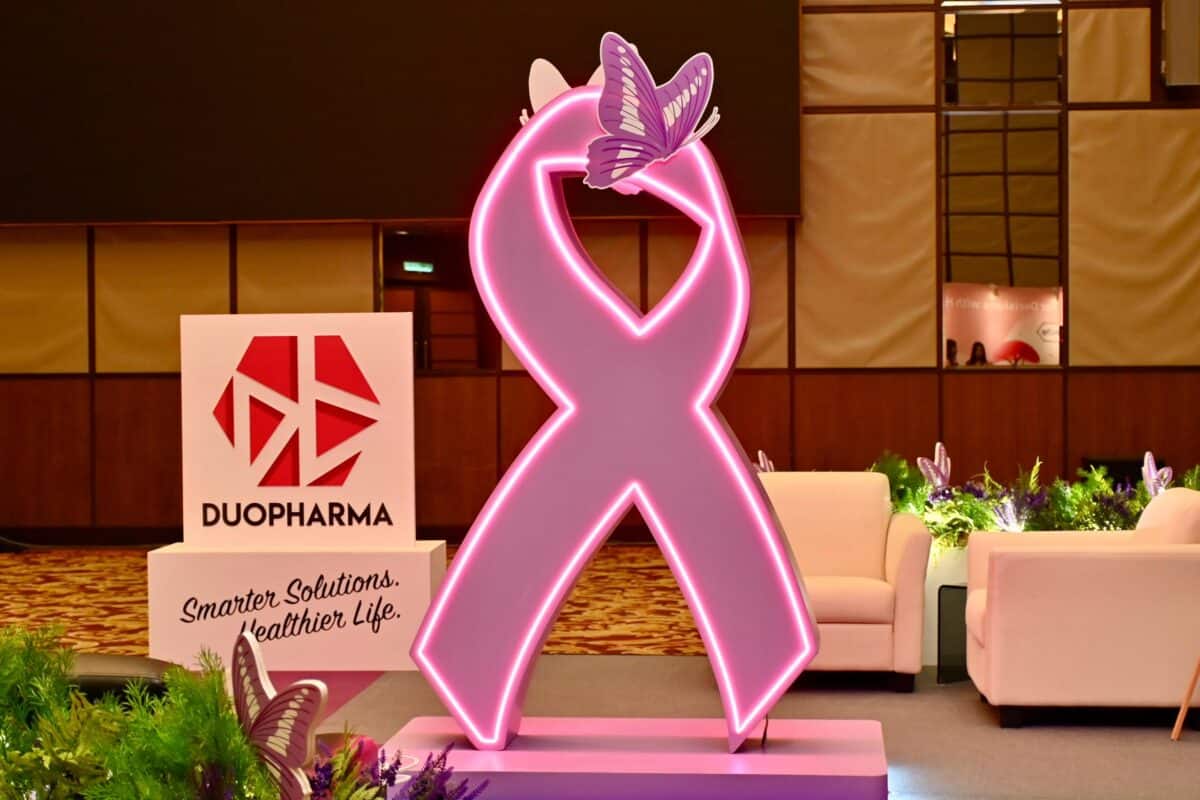
In line with Breast Cancer Awareness Month, Buletin Mutiara spoke with three remarkable breast cancer survivors who shared their personal journeys at the inaugural Malaysian Breast Cancer Summit 2024 in Penang recently. Their compelling stories, shared with moderator Sumitra Selvaraj and 300 attendees, offered hope and inspiration.
The two-day summit, organised by TalkHealthAsia.com, was officiated by Madam Tan Lean Kee, wife of Chief Minister Chow Kon Yeow.
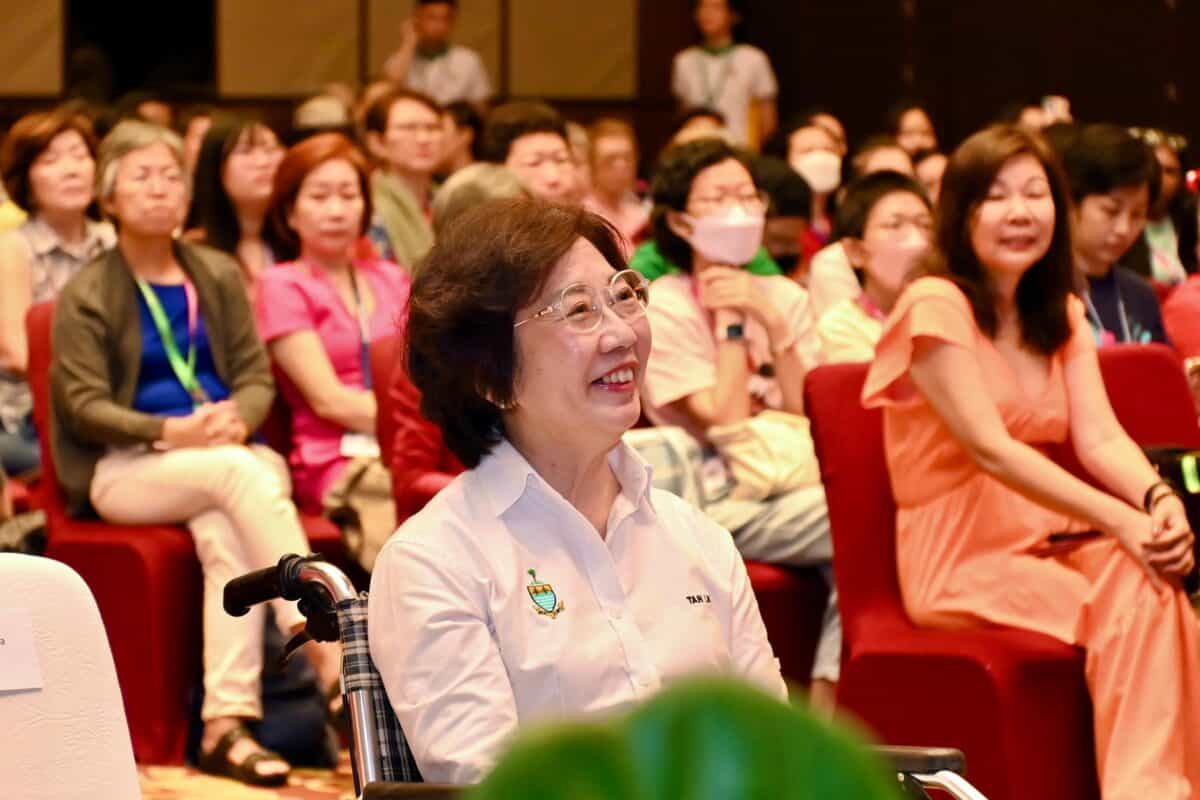
Yong Lee Lee, founder and honorary CEO of the Pink Ribbon Wellness (L) Foundation (Pink Ribbon); Kim Lim, president of the Breast Cancer Welfare Association Malaysia (BCWA); and Jayne Chee Goon Hoe, president of Pink Penang, spoke candidly about their experiences — from diagnosis to treatment and beyond.
Their mission: to inspire newly diagnosed patients and fellow survivors to believe that there is life beyond cancer.
Here are their stories:
A battle fought with knowledge and strength
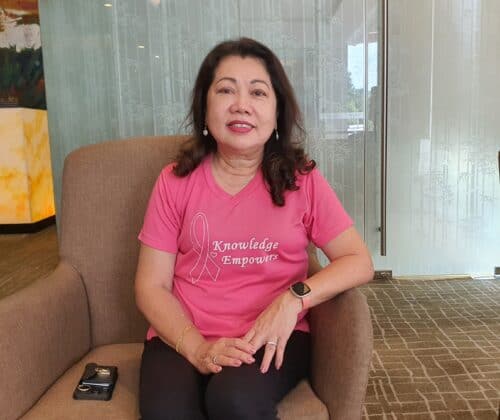
Yong Lee Lee: Founder and Honorary CEO of Pink Ribbon
I WAS 42 years old when I decided to leave my good job as a finance director for a multinational company with businesses in Malaysia, Singapore and Thailand.
The stress had become overwhelming, and I suffered a mild stroke. That was my wake-up call – I had had enough of corporate life. My two daughters were young then, aged seven and 11. I thought, why not concentrate on rebuilding my health?
But just a month before I retired in 2005, I went for a medical check-up, including a mammogram. To my shock, I was diagnosed with Stage 1 breast cancer.
I remember asking myself, ‘Why wasn’t I given a second chance?’ Like many cancer patients, I went through denial, eventually sinking into three years of depression. Back then, we didn’t have active support groups or the level of breast cancer awareness we have today.
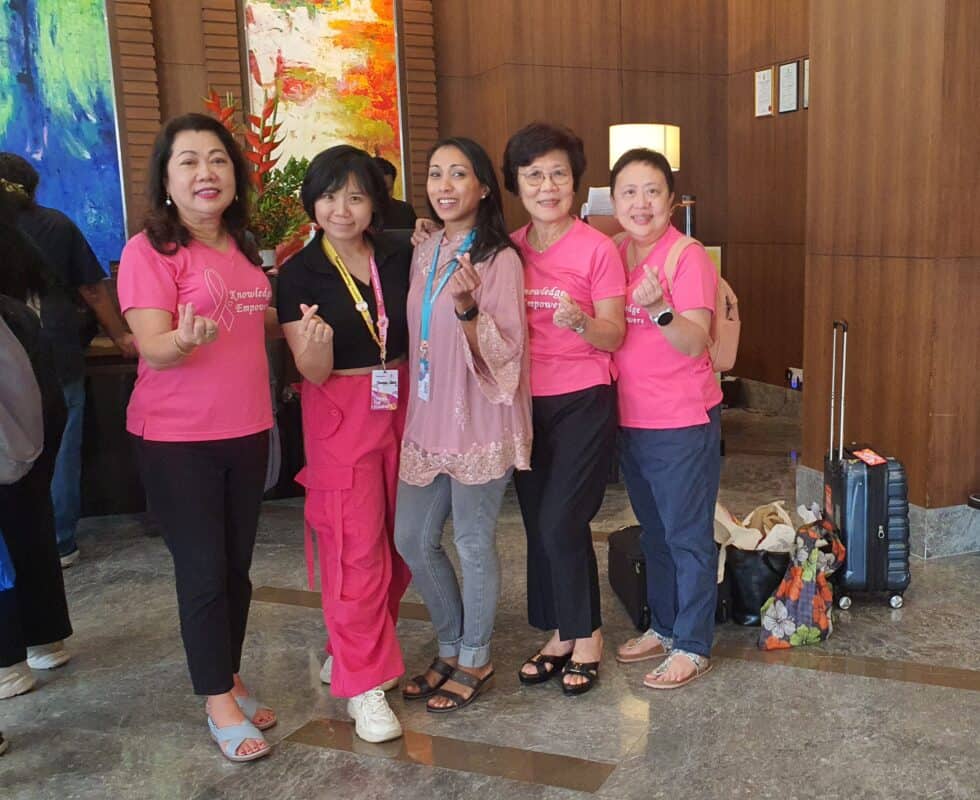
Together with my doctor, Datuk Dr M. Devanand, we founded Pink Ribbon, an NGO almost 15 years ago. Through this journey, I came to realise how much information and awareness needed to be spread.
The most important thing I learned is that knowledge empowers. In those days, we didn’t have conferences like the Malaysian Breast Cancer Summit. We travelled around Malaysia to educate the people. We dedicated half-day programmes to breast cancer awareness – promoting a healthy lifestyle for cancer prevention and the other half to supporting cancer survivors towards a better life.
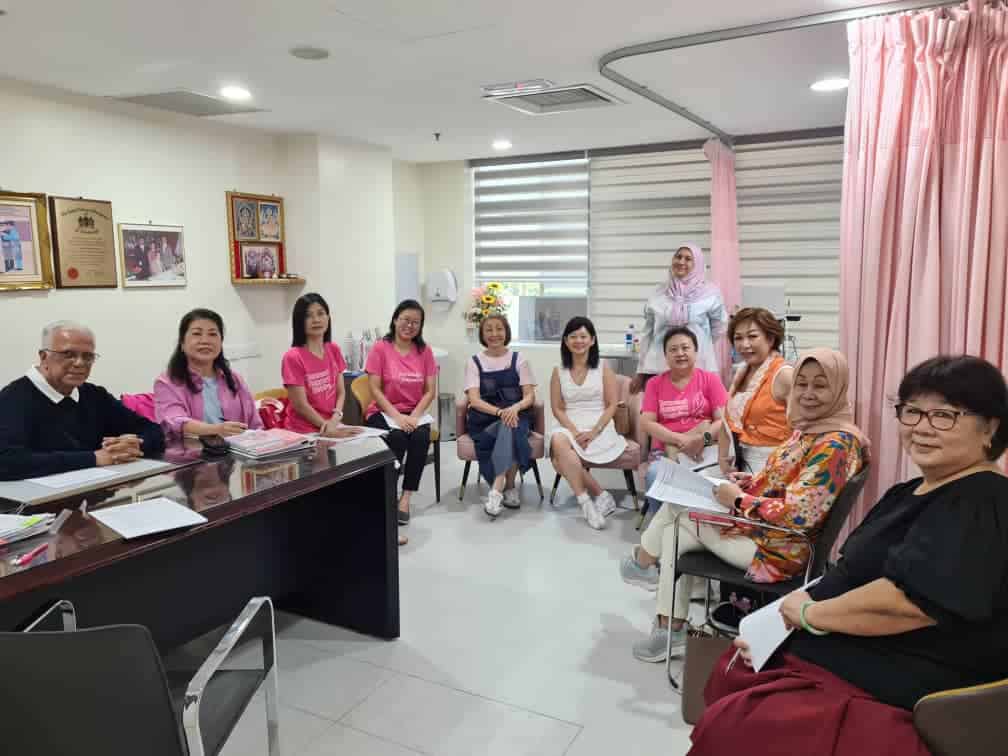
Breast cancer is the leading cancer among women, and when a mother is diagnosed, the entire family is affected. We believe that these women need support, and we teach them how to live well beyond breast cancer, encouraging them to continue living healthily as the risk of recurrence is always present.
After 15 years of being cancer-free, I experienced a recurrence during the pandemic in 2021. When I was first diagnosed with Stage 1 breast cancer, I underwent a lumpectomy, where only the abnormal breast tissues were removed. I didn’t need chemotherapy, just 15 times of radiation and five years of anti-hormone therapy. Early detection makes survival almost 100 per cent.
My reaction was different when I faced my recurrence because I was stronger and more knowledgeable. Of course, being human, I was shocked and devastated – I cried for a day.
But I quickly pulled myself together because I knew what to do. Even though a small surgery would have sufficed, I asked my doctor to remove both my breasts to reduce the risk of recurrence. By that time, I was in my late 50s, and my health was far more important to me than my breasts. So, I underwent a double mastectomy. Thankfully, the cancer was small, so I didn’t need further treatment beyond anti-hormone therapy.

But in 2022, the cancer returned, this time affecting my chest wall. Although it was tiny, I had to undergo radiation again. Radiation is not something you can do too many times due to the risk of rib fractures. Still, I went through 25 fractions of radiotherapy and am now back on medication again.
Early detection saves lives. My advice to women is to learn how to perform regular breast self-examination. Every month, a week after your period, check your breasts. You know your body better than anyone – if you notice any changes, feel a lump, or see discharge, consult a doctor immediately.
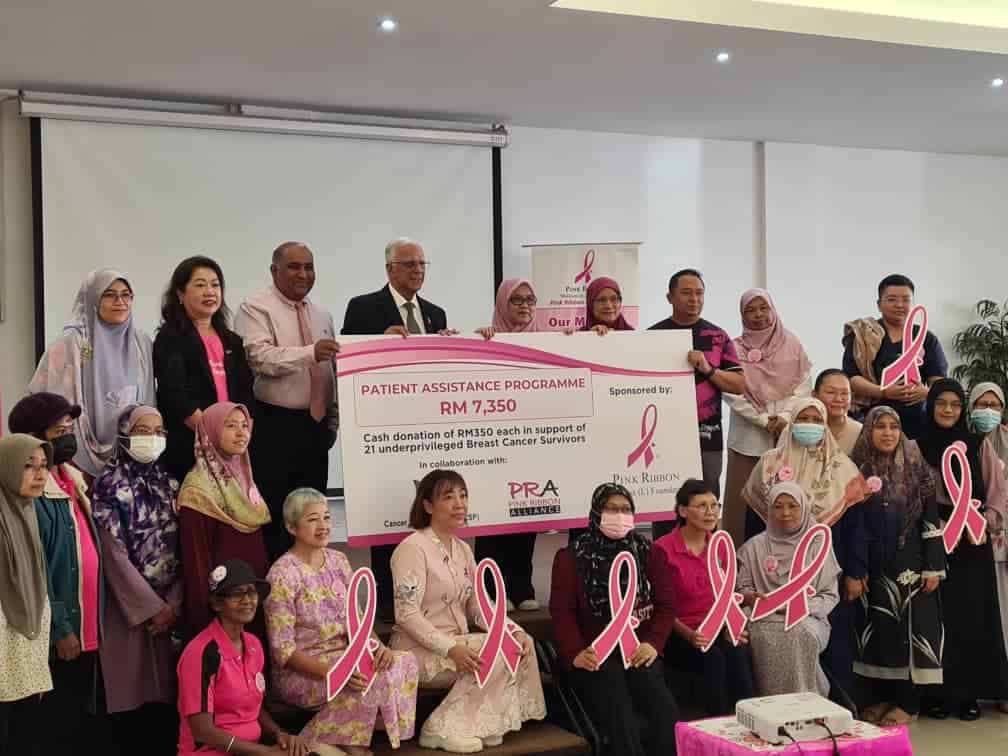
Women above 40 years old are advised to do mammogram screening every two years. The key is early detection because breast cancer is one of the most treatable cancers. Many women are afraid or ashamed to talk about it. They don’t want to tell their families for fear of stigma. But we advocate that the more you share your knowledge and raise awareness, the stronger you are.
Even after 19 years as a breast cancer survivor, I still attend conferences like this. Every time I participate, I learn something new.
No matter what, we are still women. We can wear prostheses or undergo breast reconstruction to feel good. There are ways to rebuild our confidence. It is not the end of the world.
From survivor to BCWA leader
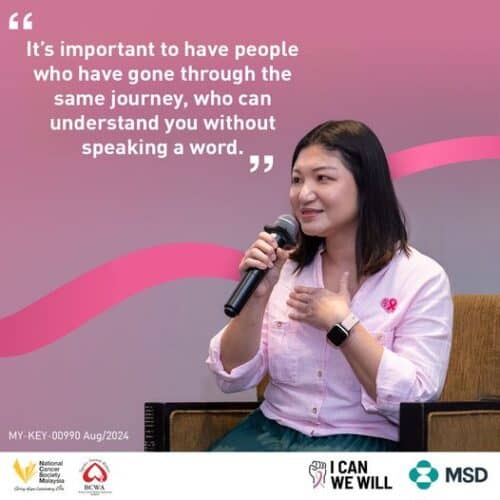
Kim Lim: Two-term president of the Breast Cancer Welfare Association Malaysia (BCWA), Malaysia’s oldest breast cancer support group.
WHEN I was diagnosed with breast cancer, I just turned 39. This year marks my fourth year as a cancer survivor.
Right before my diagnosis, I lost my job as a senior manager at a multinational company during the Covid-19 pandemic.
The first question that hit me after discovering that I had Stage 3 cancer was: ‘Why me?’ My cancer was aggressive — a triple-negative type. I told myself it was okay to lose a job because I could always find another one, but cancer was a different story.
The situation became more urgent when I failed to act for almost three months. By then the cancer had progressed. My surgeon had to perform a lumpectomy, which is a breast-conserving surgery, and remove lymph nodes. I underwent 16 rounds of chemotherapy and 20 rounds of radiation. My entire treatment took seven months.
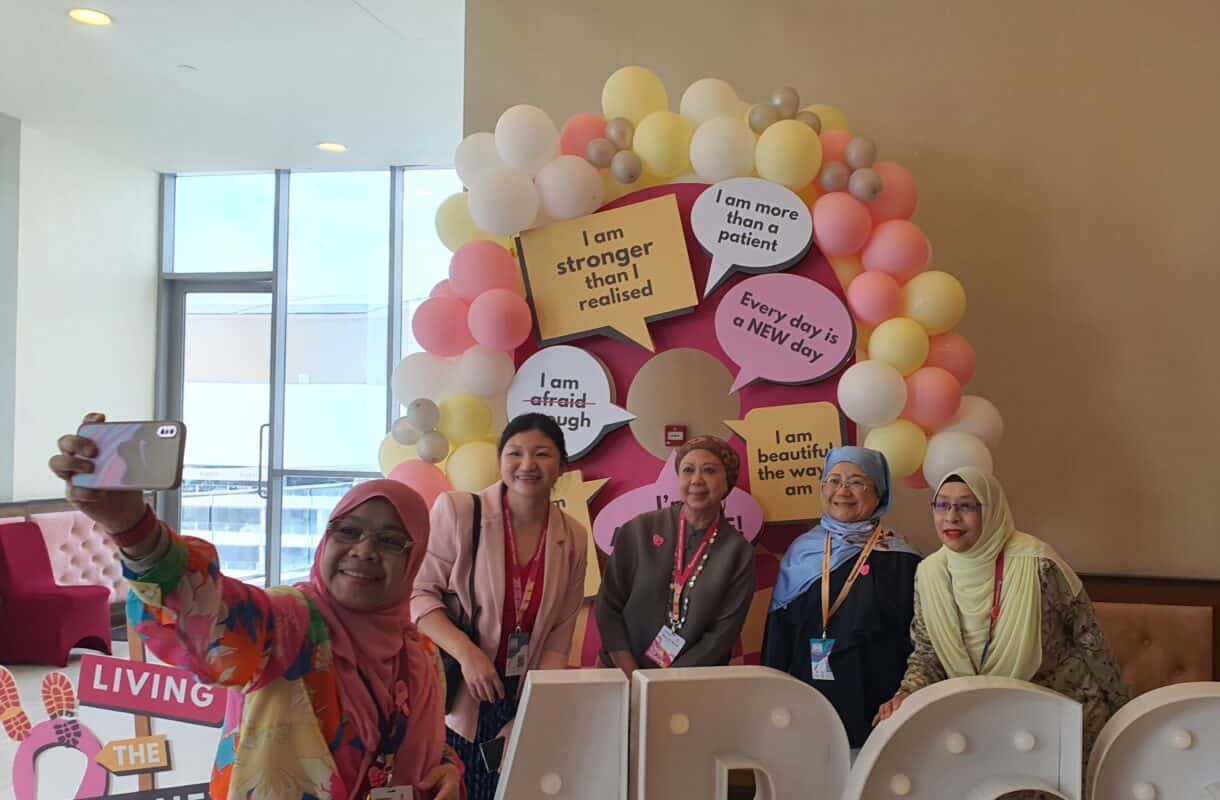
During my second round of chemotherapy, I tragically lost my brother, my only sibling, to heart failure. He was a single parent to a 10-year-old son.
As a result, the responsibility of caring for my nephew and our elderly mother fell entirely on my shoulders. Even with insurance, we had to sell our house to support the family. That was the only logical choice. While recovering, I had to send my mother to a retirement home. It never rains but it pours.
One day, I woke up in the hospital to find a woman sitting in front of me. She was a breast cancer survivor and a volunteer counsellor from BCWA. I was so fortunate to be introduced to her.
My first question to her was, ‘Are you sure you’re a breast cancer survivor?’ I had never met one before. All I had ever seen in the media were stories of people dying of cancer. Yet, there she was — looking so normal and full of energy.
Learning from her that she had survived cancer for more than 10 years, all my questions about the disease vanished.
At that time, I was pursuing my MBA and preparing for an accounting exam. After meeting her, I stopped focusing on my breast cancer and began to realise that there is hope and life beyond cancer.
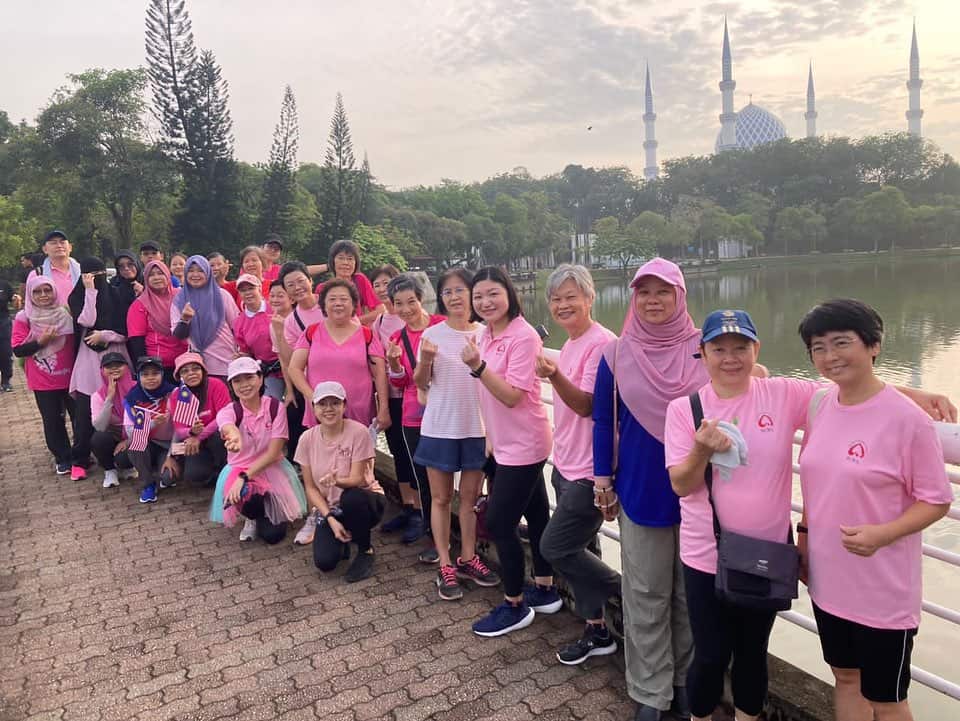
Inspired by this woman, I signed up as a patient support volunteer with BCWA. That was how my journey as an advocate began. Having been diagnosed at 38 and having gone through so much, I felt empowered to do even more. I feel very blessed that I have the support of my family, my friends and other NGOs.
During my hospitalisation, my surgeon encouraged me to talk with patients who were reluctant to continue treatment. I made new friends as a volunteer counsellor, offering hope simply by being there as a survivor in front of another patient.
The initial questions we all ask, like ‘Why me?’ And ‘Can I get through this?’ – along with concerns about the treatment and losing hair – are valid. But with determination, we can all return to our lives. It starts with a choice.
As volunteer counsellors, our role is to be empathetic and listen to patients without judgment. To become a BCWA volunteer, you must undergo three days of training with a multidisciplinary team of trainers from breast surgeons to oncologists to learn the fundamentals and then be evaluated.
My advice to the newly diagnosed is to follow your doctor’s instructions. It’s okay to seek a second opinion but don’t delay too long. Forget about looking up information on Google. I know how tempting it is when friends suggest alternative treatments, but I believe in science. I am a straightforward person – I simply follow my doctor’s advice. The right knowledge from the right source is crucial, like from our BCWA “Message of Hope” book, which can also be downloaded online.
You can eat everything in moderation but avoid raw food during chemotherapy, as it might be contaminated. When your immune system is low, you need protein to recover. Even if you have no appetite, drinking milk protein can help. If you are unsure, always check with your doctor.
When the opportunity to become BCWA president was offered to me, I was initially reluctant. As a young survivor with no experience, I wasn’t sure what advocacy entailed. I didn’t know what to say or do. I wondered if my story was compelling enough — what was so special about it?
Then, I saw it as an opportunity to serve patients. With my corporate experience, I figured, ‘Why not serve the community?’
Step by step, we can all learn. Whether you’re a president or not, each of us can make a difference. That’s how I’ve transitioned into the third year of my second term.
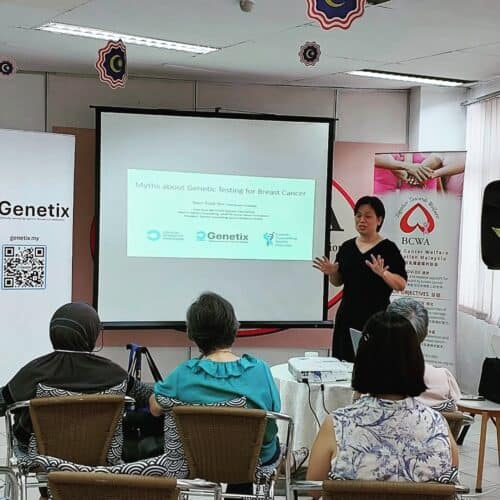
I understand the fear and financial challenges many patients face. BCWA offers free clinical breast examinations for women aged 20 and above. We also collaborate with NGOs, the Ministry of Health, and other stakeholders to promote breast health and early detection.
Advocacy is emotionally taxing and demanding, so it is vital to pace yourself and know your strengths. Advocacy can be as simple as storytelling.
So, whenever an NGO seeks volunteers, don’t be shy. We will guide you in sharing your story.
We have stories to share with different stakeholders. For example, pharmaceutical companies need to understand what patients and survivors require; the Ministry of Health needs to listen to the patients to understand their needs better, and doctors need to know what patients are going through. These insights can help drive policy changes.
Aside from my voluntary work with BCWA, I also run my own social entrepreneurship, an elderly club called “Kampungku”, in Petaling Jaya. It is a daycare centre where members receive physiotherapist-led activities to support their physical, cognitive, and social well-being, ensuring they lead fulfilling lives in their golden years. We plan to add a few beds to cater to cancer patients who travel for treatment as we are located near major hospitals. This initiative stems from my own experience caring for my mother while being a patient myself.
Through all my challenges, I’ve learned that even in the face of adversity, we can create positive change. Whether through volunteer work, advocacy, or running a business that supports others, we all can make a difference.
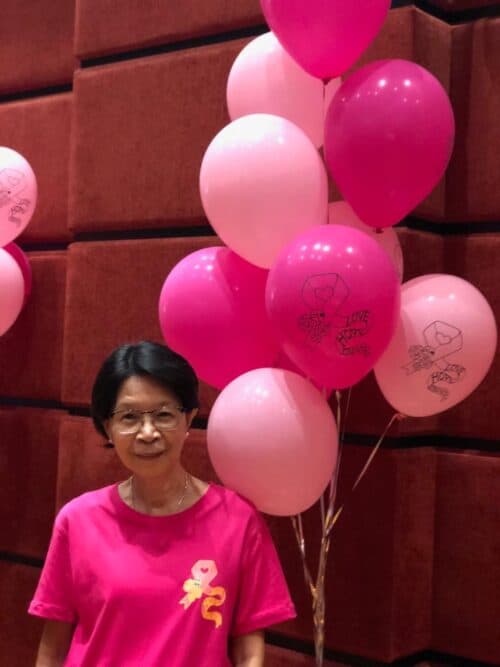
My promise to start a support group
Jayne Chee Goon Hoe: President of Pink Penang and a two-time cancer survivor. Awarded ‘Global Hero of Hope’ by the American Cancer Society in 2014.
It has been 30 years since I was first diagnosed with cancer. My journey began in 1994 when I was diagnosed with Stage 3 nasopharyngeal carcinoma (NPC), a type of cancer located behind the nose and above the back of the throat.
I found a lump on my neck. Initially, I ignored it as there was no pain … until one night, I dreamt of my late sister. In the dream, she stood at a distance, holding her neck with blood pouring out. I realised she was trying to warn me that the lump I had was dangerous and needed attention.
True enough, the lump was malignant. The cancer had already spread to four lymph nodes in my neck.
A year earlier, my younger sister, a teacher at Penang Chinese Girls Primary School, passed away from ovarian cancer on 8th April 1993. I loved her dearly and couldn’t accept her death. As a result, I struggled with insomnia and poor appetite, which weakened my immune system and led to one-and-a-half years of depression.
I underwent 35 sessions of radiotherapy at Tung Shin Hospital in Kuala Lumpur. Typically, Stage 3 cancer patients need to undergo chemotherapy. But, by the grace of God, after seven weeks of radiotherapy, the doctor informed me I wouldn’t need chemotherapy as my cancer was under control.
I told God that if I were given a second chance at life, I would start a cancer support group. Thirty years ago, hardly could we find such a group in existence.
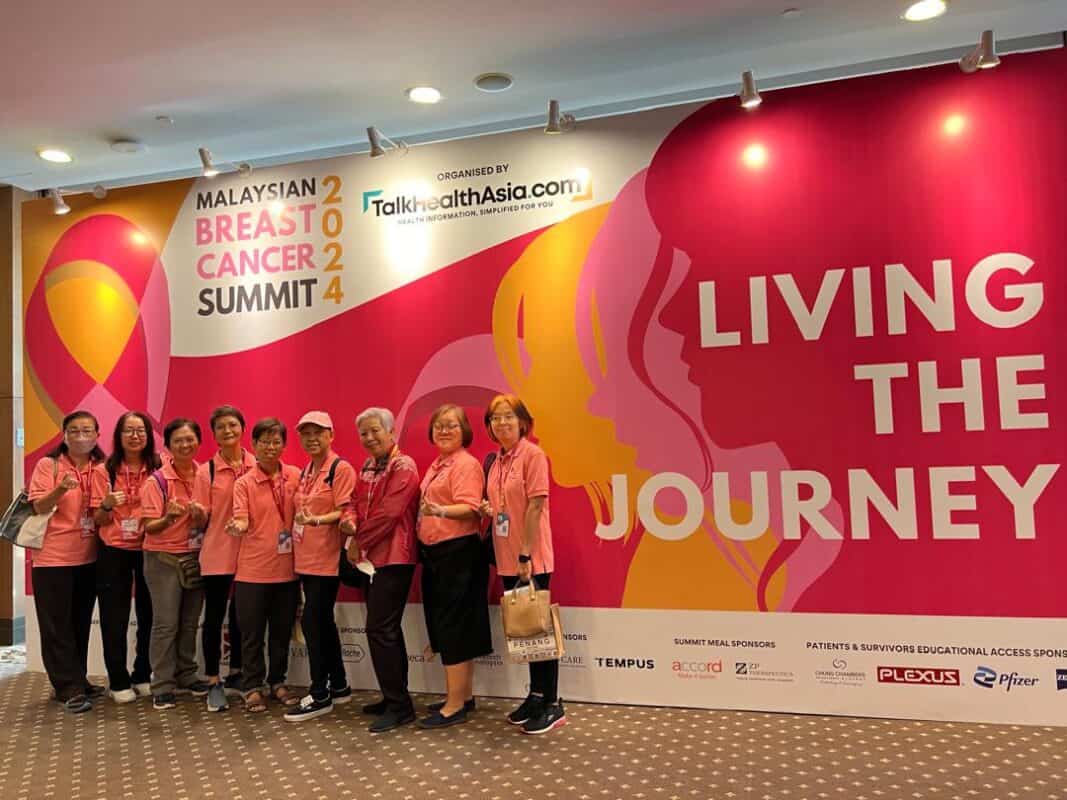
Six weeks after my treatment, I returned to work in the Accounts Department at the Penang Development Corporation. My colleagues and friends were surprised to see me looking healthier than before. Gradually, they began referring cancer patients to me for advice and support.
Starting in May 1995, I was on my own doing cancer support after office work. I met the former chairperson of the Penang State Women Development Centre, Datuk YB Kee Phaik Cheen in 1998, who played a crucial role in helping us secure an office at Kompleks Masyarakat Penyayang. Together with the assistance of two friends, we started a cancer support group that operated every Saturday from 3pm to 5pm.
I opted for early retirement in August 2001 and was involved full-time voluntarily in cancer support as my son had started his career.
Along my journey, I was fortunate to meet Dr Teoh Mei Shi, a very dedicated breast surgeon, from Penang Hospital, who now works at LohGuanLye Specialists Centre.
She is the founder of Pink Penang, and as she was busy with her professional duties, she invited me to lead the group. We are also grateful to Dr Mary Quah, the CEO of LohGuanLye Specialists Centre, for providing us with a space for our support group activities.
Our support group meets at the hospital every Wednesday from 2pm to 4pm. In addition to providing moral support, we engage in activities such as laughter therapy, qigong, yoga and singing.
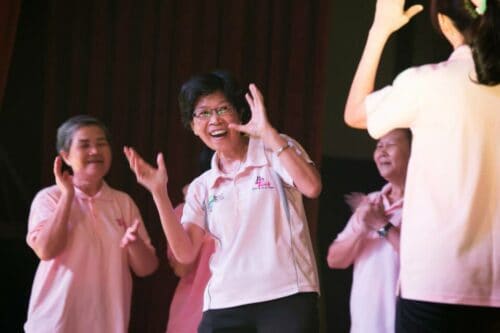
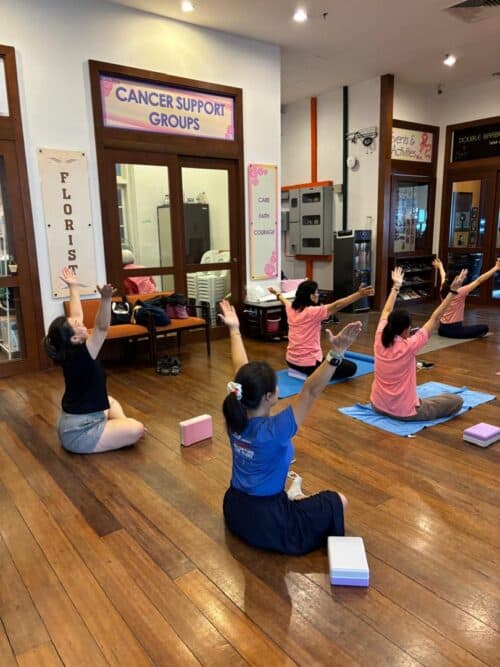
My second battle with cancer came in 2010, a time when I was having some family problems for quite some time. I was shocked to find a lump on my right breast.
The cancer had spread to my lungs and rib bones, and I was diagnosed with Stage 4 breast cancer. The oncologist told me I had only four months to live.
When my son, my only child, learned about my health and personal problems, he hugged me and said, “Mum, don’t worry. Even if you lose everything in the world, it doesn’t matter. You still have me.”
I was deeply moved by his love and decided that I couldn’t be an irresponsible mother. His words reignited my spirit, and I resolved to fight my second battle.
I fought hard because I wanted to see my son get married and care for my mother, who was still alive at that time.
In 2011, I underwent a mastectomy on my right breast and had my lymph nodes removed. I completed 12 cycles of chemotherapy. The side effects of chemotherapy were terrible, and my weight dropped to 30kg.
However, the care and concern of support group members whom I had helped in the past were incredibly encouraging.
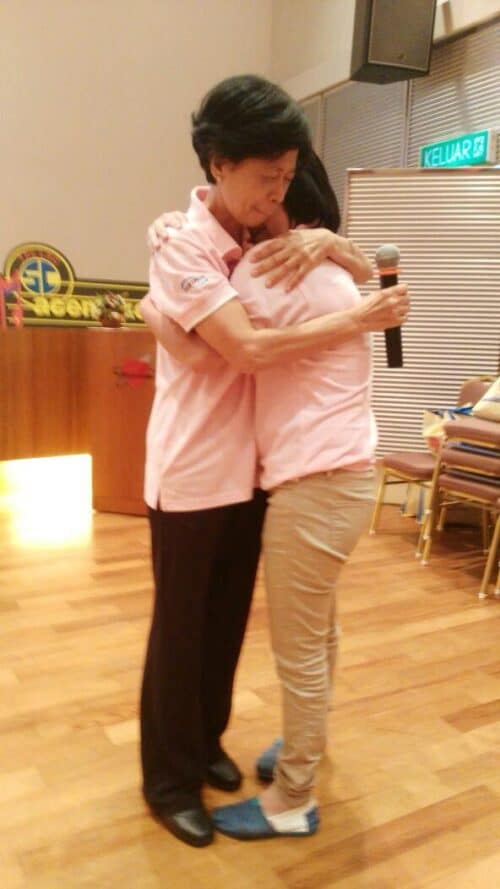
One of my greatest joys was celebrating my son’s wedding on 9th June 2011, just three days after completing my final chemotherapy session. Praise the Lord.
I always fight to live, not for myself but for my loved ones.
I often tell those who are newly diagnosed that confidence is half the battle won. The willpower to continue the journey is crucial.
Lastly, I want to say that love is a powerful force. When we share it, miracles may happen, and we can live life to the fullest.
Interview by K.H. Ong
Pix by Siti Nuratikah Rahmat and courtesy of interviewees

